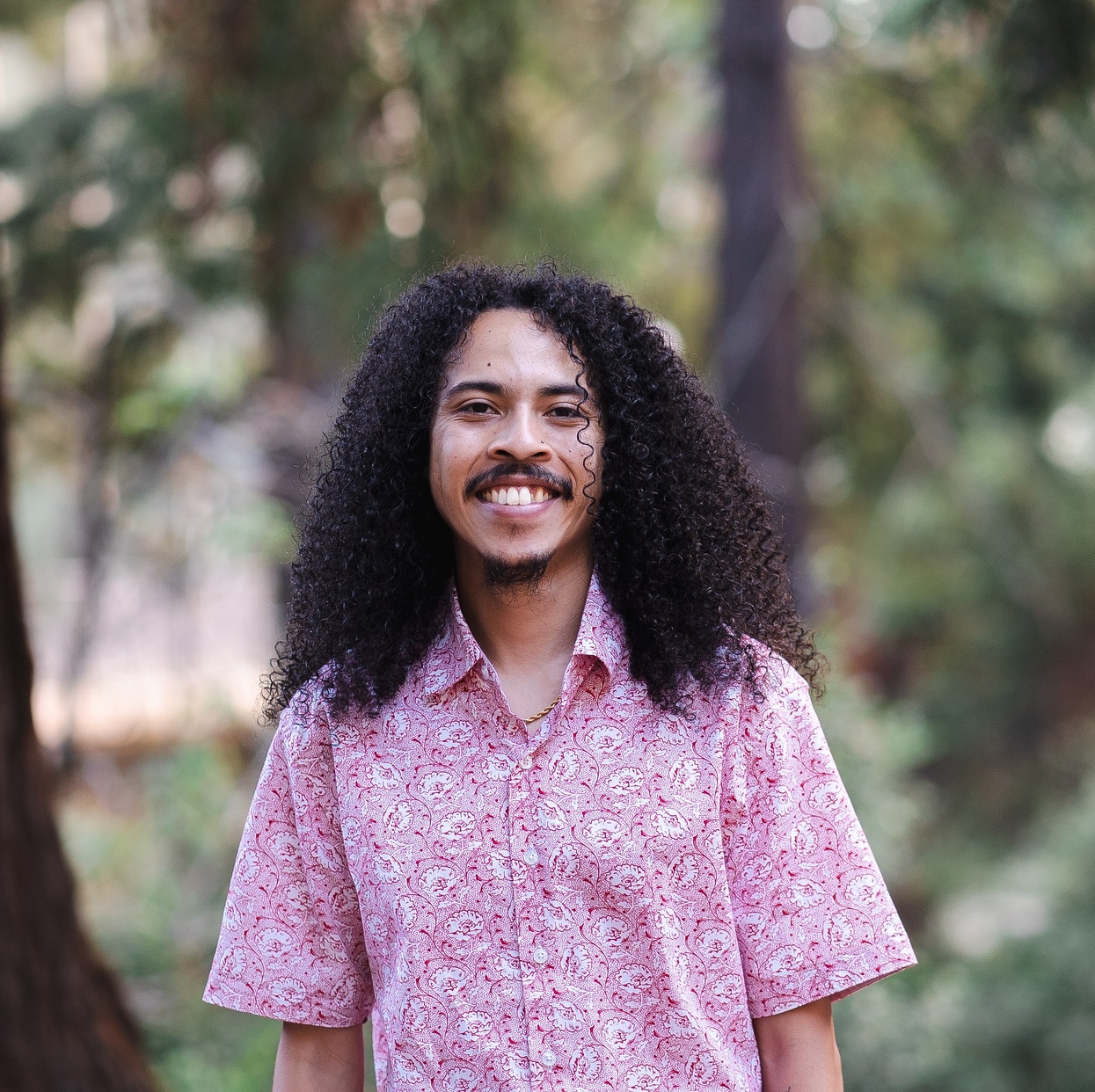Announcing the 2024 Lyman Recipient

BCNM is excited to announce Vincente Perez (Ph.D. Candidate in Theater, Dance and Performance Studies) has been awarded this year’s 2024 Peter Lyman Fellowship for his dissertation on 'S_onic Blackness'!
The Peter Lyman Graduate Fellowship in new media, established in the memory of esteemed UC Berkeley Professor Peter Lyman, provides a stipend to a UC Berkeley Ph.D. candidate to support the writing of his or her Ph.D. dissertation on a topic related to new media. The fellowship is supported by donations from Professor Barrie Thorne, Sage Publications and many individual friends and faculty.
Vincente Perez believes that approaching Hip-Hop and Poetry as separate phenomena is a misrepresentation of their capacity to elucidate the poetics of Blackness and Black sound. He intervenes in this tendency and reads rappers and poets together as theorists and practitioners who sound Blackness otherwise, in registers attuned to the nuance of Black life lived in the midst of "social death." His dissertation reads poets and rappers like Noname, Saul Williams, and Saba alongside academic theory to trace the many ways that Black social life is rendered dead, mute, and incapable of complexity within the frameworks provided by western humanism. He works within “afterlife methodologies”, a significant paradigm shift that emphasizes the way that “past” epochs haunt the material and affective present. Afterlife methodologies help Vincente expose how whiteness manifests as white noise, his term to describe the attempts to control the meaning of sound as only that which makes sense according to enlightenment ideals.
More specifically, S_onic Blackness: Hip-Hop Poetics_ postulates that Black social life demands frameworks and methodologies that attend to the non-human in order to register how Black artists have turned to sound and sound technologies to resist the capture of whiteness (Best 2004, Glissant 1997). To avoid the pitfalls of humanism, Vincente turns to scholars and practitioners that explore Blackness through an intentional turn inwards, towards Blackness, and a turn away from logics that attempt to know and master Blackness according to antiblack ideals such as The Human. Ultimately, Perez seeks to understand how Black rappers and poets activate and perform Louis Chude-Sokei’s suggestion that “music can be claimed, but sound cannot be owned.”
